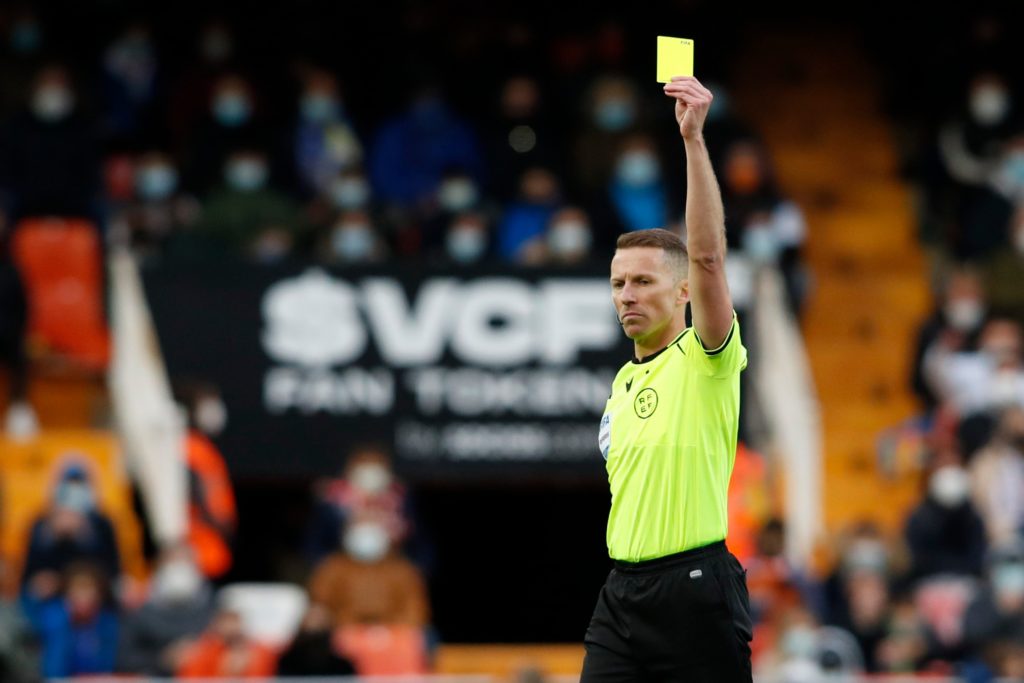Referees of all levels, cultures and genders face a wide range of physiological, emotional and physical stressors impacting their overall performance and passion for officiating. Some of these stressors include injuries, loss of form, conflict with those in charge of appointments, career transitions away from football, pressure to perform, and many more. These stressors can be detrimental towards the referee’s Mental Health causing an abrupt ending to their lifelong dreams and leaving them with feelings akin to grief and loss.
Resilience is defined as the “role of mental processes and behaviour in promoting personal assets and protecting an individual from the potential negative effect of stressors”. Many of the officials that I work with view resilience as a trait that you’re born with, but research has shown that resilience is actually a set of skills that can be fostered, developed and trained with practice. In particular, resilience is comprised of a mindset and specific coping strategies that guide the effective navigation of challenges such as injuries and performance setbacks. Building resilience can also enhance self-esteem, motivation, and determination. Daily stressors can be viewed as opportunities to practice resilience skills, which will ultimately enhance overall performance when out in the middle. Resilient referees develop confidence in their ability to recover and overcome challenges such as missed cautions or dismissals on the field of play.
With all of that being said, it is challenging to know how to build and strengthen a resilient skillset. Below are some ways that may help:
Develop a Growth Mindset
- Being willing and open to new experiences, opportunities, training, and techniques, but also being conscientious of who you are as an official. Creating an optimistic mindset can go a long way. Positive thoughts towards refereeing and performances can support you through the negative stressors that may occur throughout the 90 minutes.
- Identify your personal motivation: What is important to you? What are your goals – including process AND outcome goals – that are you trying to achieve from your officiating career? What kinds of values do you identify with as a referee (e.g., patient; fair; diligent, etc.)?
- Anticipate setbacks. Every official knows that negative outcomes are part of the process of climbing the ladder. However, spending some time anticipating what could go wrong over the course of a season and planning, step-by-step, how you would cope will reduce your anxiety and build your confidence.
Develop your Support Systems
- Make sure to foster relationships with your Referee Development Officer/Manager, colleagues, family, friends so they can be reached out to when in need of support. This can be directed towards the technical aspects of officiating, or for social and emotional support as well.
Evaluate Setbacks Constructively
- Setbacks are often viewed as failures, which can lead to a sense of discouragement and loss of motivation. Instead, can you be constructive rather than critical when reviewing your performance? What aspects were under your control (e.g., your pre-match warmup) and which were not (e.g., the weather)? Were you still able to uphold your values as an official throughout this setback? What have you learned and gained as a referee from this experience? How can you generate a plan for tackling these setbacks in the future?
Life Balance
- Allowing yourself as an official to have a balanced lifestyle, socially and mentally can foster resilience within your refereeing career. Participating in different activities with your friends and family can allow for a distraction from the negative stressors that are often faced. Additionally, being able to mentally take a step back and switch your focus between officiating and non-officiating related activities can increase mental recovery and overall wellbeing.
- As for coaches and RDOs/Ms, it is important to be flexible with referees, recognising the importance of encouraging balance in other domains of their life (work, education, etc.)
At The Third Team I work individually and in collaboration with different professionals where I have developed workshops and 1-2-1 sessions associated with Resilience and Mental Toughness Development to help referees. The workshops and 1-2-1 sessions are interactive, where referees are encouraged to open up and share their experiences to help themselves and each other.
Feel free to contact me if you’d like to know more about my workshops or 1-2-1 sessions and how I could help you or your officials.
Best Wishes,

Nathan Sherratt
Referee Educator & Managing Director of The Third Team

Nathan Sherratt
Nathan Sherratt, Referee Educator, Resilience Trainer and Managing Director of The Third Team. A Mental Toughness Practitioner based in County Durham, North East England.

